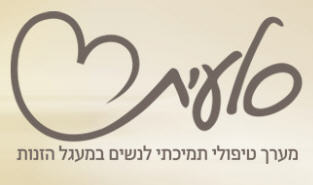On Monday, May 13th ATZUM’s Task Force on Human Trafficking attended Prostitution, Stripping and Everything in Between, a conference hosted by Saleet, a Tel Aviv shelter for women exiting prostitution. Throughout the day participants attended presentations on topics ranging from the factors that push people into prostitution to sex tourism in Thailand. Representatives from a wide variety of non-profits, media outlets, and Tel-Aviv’s government attended the conference. “It was great event,” remarked Gili Varon, TFHT director. “It was particularly encouraging to see Mayor Huladi and other representatives from the Tel-Aviv Municipality in attendance. It shows their commitment to this important issue.”
TFHT Times of Israel Blog
The Task Force on Human Trafficking is pleased to announce the launch of its blog on the Times of Israel website. The blog deals with issues surrounding sex trafficking and prostitution, with a particular focus on the effect that they have in Israel. The blog will serve as a platform to engage the public. You can read the first post here to learn about the history of sex trafficking and prostitution in Israel. Stay tuned for more posts!
Natasha Mann – Volunteer Profile
Natasha joined the Task Force in October as she settled into life in Jerusalem. She came to Israel as an ATZUM AGN Scholarship Recipient to study for the year at the Conservative Yeshiva. Her studies were in preparation for applying to rabbinical school, and we are pleased to announce her acceptance.
When Natasha joined the Task Force she was interested in volunteering but unsure of how her skills could best be used. After researching the sex trade, she began to work with Project 119, and she has been writing our weekly letters to MKs ever since. She has also taken on much of the behind-the-scenes work of Project 119, updating and reshaping our communications systems (collecting research, and recruiting and keeping in touch with volunteers).
Natasha relates her letter-writing skills have vastly improved since she began working with Project 119. “It was awkward at first,” she admits, “but the more I learned, the more passionate I became about the subject. Now I enjoy every week, as it gives me a new opportunity speak my mind about why the Prohibition of Consumption of Prostitution Services and Community Treatment Bill is so incredibly important.”
The Good Doctor: New Immigrant to Israel Sinks Her Teeth Into ATZUM Project for Survivors of Terror
Last year, Dr. Virigina Melmed, a new immigrant from Alabama, was looking for a way to use her skills as a dentist to give back to the community at large. Dr. Melmed originally came to Israel in 2010 to volunteer and provide free dental treatment to Israeli and Palestinian children whose families could not otherwise afford it. Though she only intended to stay for a few months, she found herself feeling at home Israel and wanting to stay.
Dr. Melmed was able to gain citizenship because her deceased first husband was Jewish. After making Aliyah she chose to go one step further and underwent the lengthy Orthodox conversion process.
“I might not practice in the way that they would have liked me to, but I do feel as though the conversion gave me a deep understanding of Judaism, and I feel comfortable navigating in a Jewish country and society,” said Dr. Melmed.
The Jewish value that Dr. Melmed holds most dear is giving of one’s self to the community and supporting others in their time of need.
“I had always volunteered in the States, and my life here didn’t feel quite right without a project that would allow me to contribute.”
As Dr. Melmed was settling into her new Israeli life, she began searching for a project that would enable her to give back. Soon she stumbled upon ATZUM’s Jewish Tooth Fairy Fund, a project that aims to provide dental care to survivors of terror attacks. In Survivor of Terror families, young children who were wounded often require dental intervention as a result of their injuries; in other cases, death or injury of a parent leaves the family unable to afford even the most routine pediatric dental care. The more Dr. Melmed learned about the project, the more she felt compelled to be a part of it.
“I knew almost right from the beginning that this was what I had been looking for.”
She immediately contacted ATZUM and set up an appointment to meet with Nachum, a 47 year-old father of three who was seriously injured in a 2003 bus bombing. Prior to the bombing, Nachum owned and operated a vegetable shop and was able to provide for his family. However, due to severe post-traumatic stress, Nachum is now unable to work, and his family is struggling financially. His recovery has been a long and difficult process, and it has been significantly complicated by the fact that he is need of extensive dental care.
“He was in so much pain when I first met him,” explained Dr. Melmed. “We know from research that victims of terror are at much higher risk for dental problems. Of course, there is the traumatic injury to the mouth that could occur directly because of the attack. But what most people don’t know is that medications for post-traumatic stress disorder and pain make people more prone to cavities and dental disease. Moreover, stress hormones accelerate bone loss in the mouth, so people who go through extremely stressful periods are at higher risk for loosing their teeth. And survivors have many other problems to concern themselves with – their general health, work, and taking care of their family. It’s no surprise that survivors of terror are in need of some dental assistance.”
Though Dr. Melmed connected with and believed in the value of the Jewish Tooth Fairy Fund from the beginning, she met with some skepticism from others.
“People said to me, ‘Everyone goes through hard times, why should he get free care and not the next person?’ But I feel that everyone deserves a shot at a normal life, and that’s what this treatment gives to people – a shot at confidence and independence, despite all they’ve been through.”
She decided to offer her services to the Jewish Tooth Fairy Fund, and in the end even won over some of her critics.
With Nachum’s treatment almost complete, Dr. Melmed continues to look for additional ways to give back to her new community.
“I would be thrilled to continue to work the Jewish Tooth Fairy Fund and make sure that other survivors of terror have access to the care that they need and deserve.”
Running the Marine Corps Marathon for ATZUM
 On October 28, over 23,000 runners from across North America gathered in Arlington, VA for the 37th Annual Marine Corps Marathon. Among them was Daniel Schwartz, a man on a mission. Schwartz, a native of Silver Spring, MD, decided to run the marathon in a bid to raise money for ATZUM.
On October 28, over 23,000 runners from across North America gathered in Arlington, VA for the 37th Annual Marine Corps Marathon. Among them was Daniel Schwartz, a man on a mission. Schwartz, a native of Silver Spring, MD, decided to run the marathon in a bid to raise money for ATZUM.
Though the marathon covers a grueling stretch of 26.2 miles (from Arlington, VA then winding through the streets of Washington,DC), the thought of quitting never even crossed his mind. He explained, “Completing a marathon is far easier when the runner realizes that his task has purpose beyond race day. ATZUM’s four core projects improve Israeli society and the organization’s work is truly inspirational.” Of course it also doesn’t hurt to have a cheering section, and his wife Shira and daughters Noa and Keren supported him by wearing t-shirts bearing his picture and the inspirational phrase, ‘chazak, chazak, v’nitzchazek.’ [Read more…]
How ATZUM Assists Survivors of Terror: A Case Study
 “Menachem” is a 13 year-old boy from Ashkelon. Just over four years ago, he suffered acute shock after a Grad missile fell near his school. Soon after, Menachem began to develop symptoms of post-traumatic stress disorder (PTSD). In addition to deterioration in his daily functioning, Menachem began to have nightmares and became anxious and introverted. His only regular interactions were with his parents, and he attempted to avoid social situations entirely.
“Menachem” is a 13 year-old boy from Ashkelon. Just over four years ago, he suffered acute shock after a Grad missile fell near his school. Soon after, Menachem began to develop symptoms of post-traumatic stress disorder (PTSD). In addition to deterioration in his daily functioning, Menachem began to have nightmares and became anxious and introverted. His only regular interactions were with his parents, and he attempted to avoid social situations entirely.
Menachem also found it difficult to concentrate in school, and his grades began to falter. But he realized how important his education would be in the future and made the conscious decision to overcome these hurdles and persevere. The only problem was that to do so, he would need a great deal of guided personal tutoring and support in individual learning tasks. This kind of assistance would cost a great deal money – money his family simply did not have.
Last month, ATZUM stepped in and funded Menachem’s private tutoring. Menachem’s family can now rest easy knowing that he is being provided with the skills he needs to grow academically. With any luck, his academic success will give him the confidence to reunite with the outside.
To learn more about ATZUM’s Roberts Project for Survivors of Terror, please click here.
Challenging the Myths Surrounding Prostitution
 On Tuesday, September 11, the Task Force on Human Trafficking (TFHT) brought Israeli journalists to Saleet, a Tel Aviv shelter for prostituted women. The meeting’s aim was to engage the press in a conversation about how prostitution and sex trafficking are described in the media. Journalists have much influence shaping the conversation surrounding this form of modern slavery, as well as society’s response to it.
On Tuesday, September 11, the Task Force on Human Trafficking (TFHT) brought Israeli journalists to Saleet, a Tel Aviv shelter for prostituted women. The meeting’s aim was to engage the press in a conversation about how prostitution and sex trafficking are described in the media. Journalists have much influence shaping the conversation surrounding this form of modern slavery, as well as society’s response to it.
“We have always spoken about prostitution,” said Neama Rivlin Zeevi, the director of Saleet. “The question is: How have we spoken about it?”
Pop culture and the media often portray prostitution as a glamorous, wealth-producing job. The 1990 movie Pretty Woman promoted the myth that prostitution was a way to get not only a designer wardrobe but a handsome and loving partner as well. Celebrating the sexual servitude that is prostitution has become an accepted staple of our culture. “Pimp and Ho” parties are regularly hosted on college campuses and pole-dancing classes are offered at gyms. Hit TV shows such as Cathouse and The Secret Diary of a Call Girl, portray prostituted women as sexually liberated people choosing to work in prostitution. Unfortunately, this cultural perception has made its way into Israel’s media as well. New TV shows such as Allenby, a series about a strip club in Tel Aviv, promote the myth that stripping is legitimate work for women and harmless fun for men.
The media’s insistence on this myth does not change the harsh realities of the flesh trade.
“Most women who enter prostitution in Israel aren’t women, but young teenage girls,” said one of Saleet’s social workers. “They are 14 year-old girls who come from backgrounds of physical and sexual abuse.”
Journalists from Ynet, Mako, and other leading figures in Israel’s media were given the opportunity to hear testimony from several women trapped in the world of prostitution. Advocates from TFHT and other organizations spoke of the degradation and cruelty of the flesh trade, and the benefits of passing legislation in Israel based on the Nordic Model. The accounts of both the women and the advocates highlighted for the attendees the gap between society’s perception of prostitution and its reality.
“We feel the encounter was a success,” said Gili Varon, director of TFHT. “We hope that this will be the first of several meetings with journalists to discuss the dark realities of prostitution.”
The TFHT is hopeful this marks the beginning of a larger conversation about prostitution and sex trafficking in Israel based on facts rather than dangerous myths.
Jerusalem’s Health and Community Service Center Partners with ATZUM to Aid Survivors of Terror
ATZUM is pleased to announce its new partnership with Jerusalem’s Health and Community Service Center (HCS) on its ‘Jewish Tooth Fairy Fund’ Project. The project seeks to provide a full range of dental services to Israeli survivors of terror attacks who can’t afford the treatments and have no access to dental insurance. HCS is a not-for-profit project providing first-rate dental treatment to low-income populations in Israel since 1983.
To join ATZUM and HCS in this important effort please click here.
It’s All Politics
Several days ago, I was awakened by a phone call from a very annoyed man. “I’m calling from the Knesset,” he said. “You’ve been sending us letters.” His tone was accusatory and I was guilty as charged. I along with 126 others have indeed been sending emails to the Members of Knesset. In the past five months we sent 1,904 emails urging MKs to pass MK Orit Zuaretz’s proposed legislation to criminalize the purchase of sexual services.
I was pleased to be speaking with someone who realized that combating sex trafficking and prostitution belongs near the top of our government’s to-do list, given that there are many thousands of prostituted persons in Israel, many of whom are children. Although procuring is illegal in Israel, 90% of these women and children are owned by pimps and experience violence at their hands or the hands of their clients. A responsible society would ask, ‘Why are these numbers so high? Why are there tens of thousands visits made every month to prostituted persons in Israel?’ The answer is simple – there is inadequate enforcement of anti-procuring and anti-trafficking legislation, thus allowing men to exploit one of our country’s most vulnerable populations without fear of punishment.
But there is good news. MK Zuaretz’s proposed progressive legislation to criminalize the purchase of sexual services is designed to eradicate this violation of human rights. Similar legislation passed in Sweden, Iceland, Norway, and France, has seen the rate of sex trafficking decline 45% – 65% and has led to significant decreases in the prostitution of minors. The idea behind the legislation is to place criminal responsibility on those who choose to participate in an industry that is responsible for kidnapping, rape, child abuse, violence against women, and the spread of sexually transmitted diseases.
“Yes, I have been sending you letters,” I said. “Thank you for being in touch with me. I wanted to ask…” He cut me off.
“What you must understand is that it is all politics.”
“What?” I asked.
“I said, ‘What you must to understand is that it is all politics,’” he repeated. “It can’t be moved forward. We don’t have the votes, and without the votes what is the point of putting the bill on the table?”
“Surely, this is about more than politics,” I protested.
He assured me it wasn’t.
His answer surprised me. After all, the hard part of getting this bill passed was supposedly behind us. In February, the Ministerial Committee gave the legislation its unanimous recommendation. Due to coalition obligations the rest of the process was supposed to be a mere formality. In fact, many Israelis with whom I’ve spoken believe the bill has already passed. Yet the bill’s progress, once full of momentum, has slowed. Sadly, for Israel the momentum has been lost to partisan, socially regressive politics.
“There has been some legislation we have waited 60 years to pass. We have to wait until the time is right,” the man explained to me.
“Are you telling me we might have to wait 60 more years for this legislation?” I asked. “What about the women and children prostituted and trafficked right now? What are we supposed to do about that?”
“It’s not about that,” he said. “It’s really all about the politics.”
Amos Oz has spoken of the “affront and outrage” Israelis are experiencing “…over the government’s indifference to the people’s suffering.” To me, this conversation was yet another example of our government’s indifference. Israelis deserve more than indifference. We deserve a government defined by its will to serve and protect its citizens. We deserve a government that understands that progress, however difficult to achieve, should be vigorously pursued.
My conversation ended when the man from the Knesset hung up. Before hanging up he left with me with the distinct impression he’s had enough of my letters. I’ve decided to stay in touch. I want another answer – one that couples principles with politics. I want another answer as to why this legislation hasn’t yet passed and I think that the rest of Israel does, too.
To sign up with Project 119’s lobbying to pass legislation criminalizing the purchase of sexual services in Israel, please contact Rebecca.
TFHT Participates in “A Dialogue Between Cultures” Conference
On July 24, ATZUM’s Task Force on Human Trafficking (TFHT) participated in the Knesset conference “Dialogue Between Cultures and the Fight against Human Trafficking: the Cultures of Eastern Asia” organized by Rachel Gershuni, Israel’s Ministry of Justice National Anti-Trafficking Coordinator. The Conference aimed to educate non-profit organizations and law enforcement and government officials about cultural differences that make identifying and assisting victims of human trafficking from East Asia challenging.
Israel is a destination country for low-skilled workers from Thailand, China, Nepal, the Philippines, India and Sri Lanka. Although many of these men and women come to Israel voluntarily for contract labor in the construction, agriculture, healthcare, and domestic care industries, some face conditions of forced labor. This includes unlawful withholding of passports, restrictions on movement, failure to pay wages, threats, sexual abuse and physical intimidation. Once in Israel, these men and women are vulnerable to being targeted for forced labor and sex trafficking. Additionally, labor recruitment agencies in Israel usually require workers pay recruitment fees of $1,000 to $10,000, a practice often resulting in workers suffering debt bondage.
When asked whether or not Ms. Gershuni considered the conference a success, she replied that she “fulfilled a personal dream by organizing this event,” and that it was the start of what she hoped would be a “larger conversation.” Ms. Gershuni plans to host the event in several other cities in Israel to continue to educate people about the importance of sensitivity to cultural differences while providing victims of trafficking with the assistance they require.







